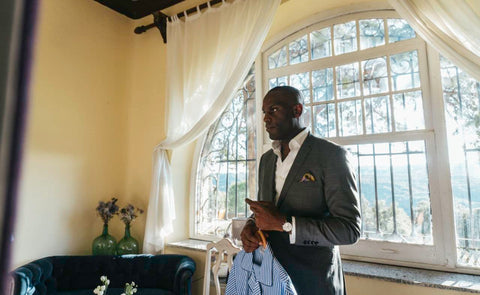Speaking of night rest and those routines that are necessary to achieve that indispensable rest as a key factor for overall health, also necessary to optimize performance and face all the activities and challenges that the day brings, building habits that encourage rest starting with putting on the best pijama.
Now then, some components worth evaluating that will directly affect this longed-for health are stress and anxiety; however, it must be clarified that these are normal responses of the body to an imminent danger or the perception of it, meaning that stress is necessary as a state of alert but the problem arises with excesses when it becomes a permanent state, that is where problems occur.
So, both stress and anxiety allow generating the alertness and activation necessary to face the dangers or threats that arise and seek solutions.
Problems That Affect Rest
Thus, they become a real problem when they reach a high level or are too intense or disproportionate to the stimulus that activates them, as well as when they last too long, meaning they extend over time even when that event of danger, challenge, or inability to face it disappears, likewise when they are reactions and behaviors that are too frequent.
The activation and alert response they trigger, whose primary objective is to mobilize resources for survival, is incompatible with sleep. For this reason, when these emotions persist over time, they end up causing psychophysiological problems such as insomnia.
In this way, both anxiety and stress become one of the main precipitating or triggering factors of transient insomnia problems. It has also been clinically proven that there is greater activation both at the physiological and cognitive levels in those people who have a greater tendency toward transient sleep problems with the potential to become chronic.
In this context, it is about seeing the health problem and its possible solutions; on the other hand, it will be essential to consider that once insomnia problems are established, consequently, the lack of sleep produces a physiological reaction in the body that contributes to considerably increasing these present levels of anxiety and stress, generating a higher state of alertness and activation, therefore, greater difficulties in being able to relax and fall asleep, creating a vicious circle that can be dangerous.
Stress and Anxiety
Obviously, the mechanisms that produce this effect are essentially a whole cascade of biological events that take place in our body in response to one or several events that trigger stress states at the hormonal and neuronal levels, causing these alterations in the secretion of various substances such as cortisol, which inhibits and suppresses sleep, as well as prolactin or serotonin, closely related to the regulation of sleep cycles, mood states, pain perception, among others.
Thus, it can be seen how stress and anxiety become serious triggers of insomnia and, in turn, a terrible consequence of it, being a fundamental element to be medically treated in sleep problems. To speak more clearly, it must be understood that, indeed throughout life, multiple situations will inevitably arise that will produce anxiety or stress.
Exactly these situations bring changes, illnesses, problems; in short, life is full of moments that can bring a series of conflicts and crises. The objective, which is indeed the most logical, focuses on adjusting those emotions to the situation that causes them and acting accordingly and aligned to stabilize our attitude with that emotion as soon as possible.
Hence, if what is generating stress is making it difficult to fall asleep, it will be essential to address the situations that cause anxiety much more consciously and, if necessary, seek professional support. As an initial exercise, addressing these problems and situations should focus on the most frequent symptoms or triggering situations, trying concretely to intervene in all cases at the three levels in which anxiety states manifest, that is, from thoughts, physical responses, and motor responses.
Attitude and Self-Control
There are different cognitive techniques and methods such as thought control, cognitive restructuring, paradoxical intention, self-instructions, problem-solving; and from the physiological point of view, techniques such as relaxation, meditation, or physical deactivation.
Some suggestions to evaluate and especially preventively, it would be very convenient to considerably reduce the risk of suffering problems associated with anxiety and stress, as well as to learn strategies to deal with and face stress, starting from the fact that there will always be situations that trigger these states, so that when problems inherent to life, work, study activities, among others, which indeed generate stress, arise, one can develop that capacity that allows facing them in a much more resolute and efficient way.
For example, a series of really useful tools for life such as time planning, effective decision-making processes or problem-solving, social skills and assertiveness, relaxation techniques, self-esteem development, among others.
Rest Routines
Proper time management is one of the fundamental elements that frequently trigger situations of stress and anxiety states. A good tool is then the design, application, and implementation of routines that allow optimizing the execution of tasks and activities of all kinds, which brings structure and order.
This routine must include every single activity: work, study, entertainment, and rest. Planning rest routines allows building habits to stabilize and regulate schedules and from customs be able to dedicate the necessary time to sleep in night rest.
In general, sleep is very important, and sleeping eight hours on average is essential and highly beneficial for health. For an average person, there are numerous temptations that can cause temptation and pull away from the bed, as well as many more that attract us to it, intimacy in the best case.
Men's pajamas should be one of the first items to consider in our daily rest ritual as part of that routine in building those habits we want to establish. This is because these garments have become increasingly important in men's lives to sleep comfortably and peacefully under the covers.
A man who has the habit of using a pijama as sleepwear is by nature very attached to his habits, as they are part of his character and personality. For him, the time of night rest is perhaps one of the most awaited and important moments after a very long day that could have been very hectic at work with all the challenges and responsibilities he must face daily.
In conclusion, if you need a good pijama to feel great at home and sleep comfortably, we have the solution. Visit our website El Búho Nocturno where you will surely find your ideal pijama.

